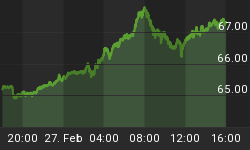For those market boosters who are prattling on about the possibility of a "jobless recovery," I offer an invitation to join me for a breakfast of "fat-free bacon," "eggless omelets," and "no-carb bread." As unappetizing as such a meal may sound, it would nevertheless offer more substance than the oxymoronic concept of an economic resurgence without job creation.
Those who do cling to the absurd belief that, absent exponential productivity gains, the economy can expand while workers are being laid off will undergo a massive test of their convictions now that it's clear the employment picture is bleak. Today's weaker-than-expected report on non-farm payrolls revealed that employers shed 263,000 jobs in September. The losses propelled the headline unemployment rate to a 26-year high of 9.8%. U6, the Bureau of Labor Statistics' most complete measure of unemployment, has risen to a dismal 17%. This figure includes those people who want to work full time, but have simply given up looking, or who have accepted part-time work in the interim. As it is similar to the methodology used during the Great Depression, U6 offers better historical perspective on the severity of our current crisis.
Taken together with yesterday's larger-than-expected pickup in unemployment claims (first time claims rose by 17,000 to 551,000), today's report makes it certain that the job market is still contracting, even while some indicators like GDP and consumer confidence are moving in the opposite direction.
There is no question that the sense of panic has temporarily subsided. In recent interviews, Treasury Secretary Geithner has been almost giddy in his descriptions of the recovery - all the while crediting his own policies for averting disaster. Americans are once again taking the government's bait by spending money they don't have to buy things they can't afford. Evidence of this trend was contained in data released earlier this week which showed that even while income growth was largely stagnant, U.S. consumers showed the biggest month-over-month increase in personal spending in ten years! With the same report showing a 25% drop in the savings rate, the source of the spending money is clear. But depleting savings and increasing borrowing does not a recovery make.
To really recuperate, the government must allow market forces to restructure our economy. The government and individuals must rein in their spending; we must replenish our stock of savings, allow interest rates to rise, asset prices to adjust to economic reality, insolvent businesses to fail, and wages to reflect productivity. To accomplish these goals, subsidies that distort market forces must be removed and regulations that undermine our competitiveness must be repealed.
None of this can be accomplished without a degree of short-term economic pain. However, if we endure it, the payback will be a real recovery with plenty of new jobs that don't rely on government stimulus money. If we refuse to allow the economy to experience a real recession, we will never have the benefit of a real recovery. Instead, we get the "jobless recovery," a veneer of apparently positive indicators that merely obscures the underlying rot.
Over the last few decades, our industrial job market has atrophied while service- and public-sector jobs have grown unsustainably. We must restore balance. New jobs will have to come from areas that produce goods; bloated service and government sectors must be allowed to shrink. By propping up the sectors that need to contract, and running staggering budget deficits, the government cuts off the capital necessary to fund sectors that need to expand.
In truth, many of the service-sector jobs that exist today, such as real estate sales, mortgage finance, home improvement, and auto sales, were created in an environment of ever-increasing home equity, rising stock prices, and almost unlimited access to cheap consumer credit. With home equity gone, stock markets flat, and credit depleted, Americans find themselves needing to save rather than spend. But Washington has put through policies that have counteracted our good instincts.
While we were focusing our economy on consumer spending, much of the rest of the world was saving for the future. As such, we must begin to produce more for export, so that we can sell goods to those who have the savings to pay for them. That is the only way we can repay our debts, replenish our savings, repair our infrastructure, and rebuild our industrial base.
Another prerequisite to any real economic expansion is the potential for business owners to earn profits. With increased regulation and higher taxes on the way, these incentives are being diminished. In fact, via a phenomenon called 'regime uncertainty,' our current policy path is actually encouraging businesses to contract in order to prepare for a more hostile business environment.
Robust economies utilize all spare capacity, or restructure it for better use. Having 17% of our able-bodied population sitting at home or working part-time at Cinnabon indicates that our present policies are weakening the economy - even if GDP is growing. There is no "jobless recovery," only senseless cheerleading.
For a more in-depth analysis of our financial problems and the inherent dangers they pose for the U.S. economy and U.S. dollar, read Peter Schiff's 2008 bestseller "The Little Book of Bull Moves in Bear Markets" and his newest release "Crash Proof 2.0: How to Profit from the Economic Collapse." Click here to learn more.
More importantly, don't let the great deals pass you by. Get an inside view of Peter's playbook with his new Special Report, "Peter Schiff's Five Favorite Investment Choices for the Next Five Years." Click here to dowload the report for free. You can find more free services for global investors, and learn about the Euro Pacific advantage, at www.europac.net.















